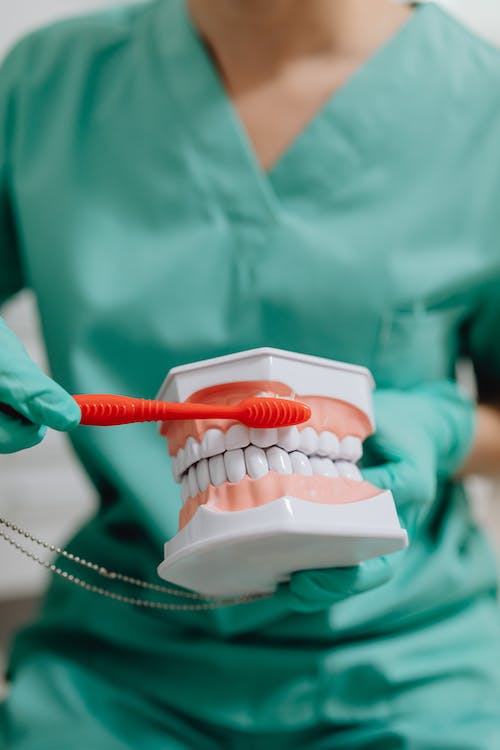While physical health is important, it’s also crucial to develop healthy habits like practicing good oral hygiene. However, various changes may improve one’s oral health, but the best course of action is to follow a dentist’s recommendations. Ultimately, clean oral hygiene can be tough to maintain but does not need to be.
The following basic hygiene tips can help improve oral health and prevent oral diseases. Keep reading to learn more.
Different Types of Toothbrushes
Some may not realize that toothbrush packages indicate what type of toothbrush is being sold. Lambton Family Health explains that a soft toothbrush is “gentle on teeth and gums that can remove bacteria and plaque without irritation.” Medium brushes are standard and typically clean more effectively but can be harsh on gums with added pressure. Lastly, hard brushes are often used for tougher materials and surfaces like stained dentures or partial teeth.
Dentists often recommend a softer or medium brush depending on one’s oral health during a dentist visit. Annual dentist visits can help determine what dental habits one should practice.
Rinsing After Meals
Rinsing with mouthwash allows water to scrape out any leftover plaque, food, or bacteria a brush cannot reach. Smithson Valley Family Dentistry states that a quick rinse with water can “boost the body’s natural ability to clean itself after a meal.” Rinsing means there is less food the body needs to moderate. Additionally, rinsing can help remove the build-up of bacteria and plaque earlier than at the end of one’s day. Smithson also suggests that rinsing helps prevent unwanted bacteria from entering other body parts.
Flossing Regularly
Like rinsing, flossing can help reach areas where a toothbrush cannot and “help keep bacteria under control,” according to Mayo Clinic. Flossing can help prevent tooth decay and gum diseases that may develop from poor oral hygiene. It is one of the best methods to keep gums healthy and prevent bacteria from becoming oral infections. Without daily flossing, oral damage, and infections are more likely to develop.

Brushing the Tongue and Gums
Brushing one’s teeth is important, but brushing the tongue and gums can be equally as important. Healthy gums and a healthy tongue prevents bad breath and gum recession, which can be a prolonged health issue. Intense brushing can often lead to gum recession, leaving the tongue and gums vulnerable to irritation and exposure to teeth roots.
Likewise, if neglected, the tongue can be susceptible to bad dental hygiene, such as bad breath. Healthline suggests gentle tongue brushing after brushing one’s teeth can help improve oral health. The practice should be performed after brushing one’s teeth., Establishing a routine can assist with oral hygiene and develop healthier habits.
Building a Routine
Building a routine can also help remind oneself to practice the aforementioned oral hygiene tips. After each meal, one could quickly rinse their mouth after washing dishes. Alternatively, one can set up reminders through their phones to floss, rinse, or be reminded to brush more gently.
The goal should be to incorporate the necessary habits for oral health during teeth brushing. Building a habit can go a long way to prevent gum diseases, cavities, gum recessions, and more.
Conclusion
Developing a healthy oral hygiene routine is crucial to improving oral health. The routine can include using the correct toothbrush, rinsing after meals, flossing, and brushing the tongue and gums. One should ask a dentist what specific actions they should take before considering the prior listed tips. Oral hygiene is important, and practicing good oral health methods can keep one’s mouth and teeth healthy.
For more about health and compression socks, check out the rest of MagicFeet.com.
